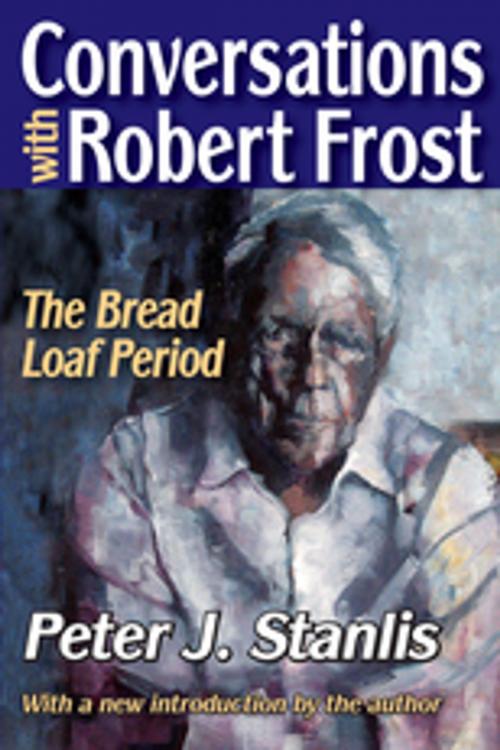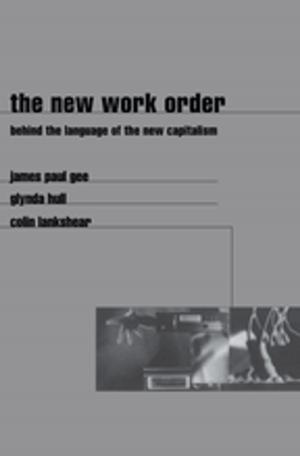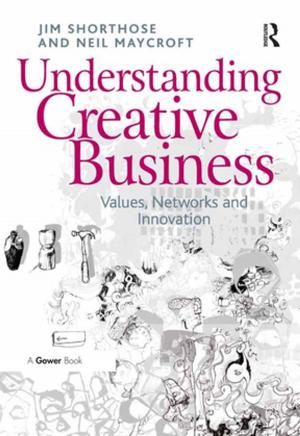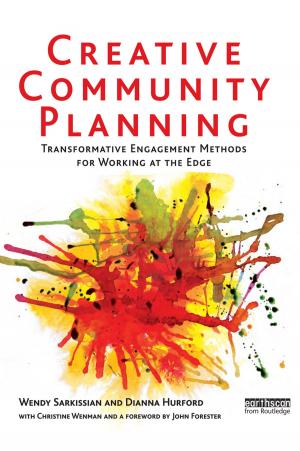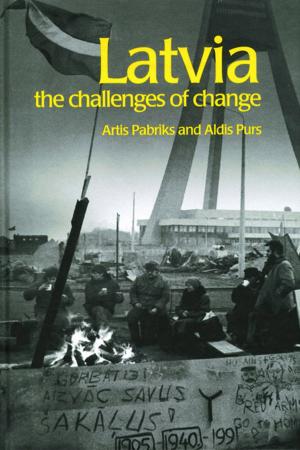Conversations with Robert Frost
The Bread Loaf Period
Biography & Memoir, Literary, Nonfiction, Religion & Spirituality, Philosophy| Author: | Peter Stanlis | ISBN: | 9781351525817 |
| Publisher: | Taylor and Francis | Publication: | July 5, 2017 |
| Imprint: | Routledge | Language: | English |
| Author: | Peter Stanlis |
| ISBN: | 9781351525817 |
| Publisher: | Taylor and Francis |
| Publication: | July 5, 2017 |
| Imprint: | Routledge |
| Language: | English |
These core conversations between Peter Stanlis and Robert Frost occurred during 1939-1941. They are written in the much larger context of nearly a quarter century of friendship that ended only with the passing of Frost in 1963. These discussions provide a unique window of opportunity to appreciate the sources of Frost's philosophical visions, as well as his poetic interests. The discussions between Stanlis and Frost were held between six consecutive summers (1939-1944), when Stanlis was a student at the Bread Loaf Graduate School of English. These were augmented by additional exchanges at Bread Loaf in 1961-1962. These conversations provide original insights on important subjects common to both men. Frost insisted that it was impossible to make a complete or final unity out of the conflicts between spirit and matter. Ordinary empirical experience and rational discursive reason and logic could not harmonize basic conflicts. He held that the best method to ameliorate apparent contradictions in dualistic conflicts was through the "play" of metaphorical thinking and feeling. Metaphors included parables, allegories, fables, images, symbols, irony, and the forms and techniques of poetry such as rhyme, rhythm, assonance, dissonance, personifications, and connotations. These are the arsenal from which poets draw their insightful metaphors, but such metaphors are also the common property of every normal person. A poem is "a momentary stay against confusion," a form of revelation for "a clarification of life," but not a final, absolute answer to the mysteries and complexities in man's life on Earth. So too - at their best - are science, religion, philosophy, education, politics, and scholarship as a means of ameliorating human problems.
These core conversations between Peter Stanlis and Robert Frost occurred during 1939-1941. They are written in the much larger context of nearly a quarter century of friendship that ended only with the passing of Frost in 1963. These discussions provide a unique window of opportunity to appreciate the sources of Frost's philosophical visions, as well as his poetic interests. The discussions between Stanlis and Frost were held between six consecutive summers (1939-1944), when Stanlis was a student at the Bread Loaf Graduate School of English. These were augmented by additional exchanges at Bread Loaf in 1961-1962. These conversations provide original insights on important subjects common to both men. Frost insisted that it was impossible to make a complete or final unity out of the conflicts between spirit and matter. Ordinary empirical experience and rational discursive reason and logic could not harmonize basic conflicts. He held that the best method to ameliorate apparent contradictions in dualistic conflicts was through the "play" of metaphorical thinking and feeling. Metaphors included parables, allegories, fables, images, symbols, irony, and the forms and techniques of poetry such as rhyme, rhythm, assonance, dissonance, personifications, and connotations. These are the arsenal from which poets draw their insightful metaphors, but such metaphors are also the common property of every normal person. A poem is "a momentary stay against confusion," a form of revelation for "a clarification of life," but not a final, absolute answer to the mysteries and complexities in man's life on Earth. So too - at their best - are science, religion, philosophy, education, politics, and scholarship as a means of ameliorating human problems.
